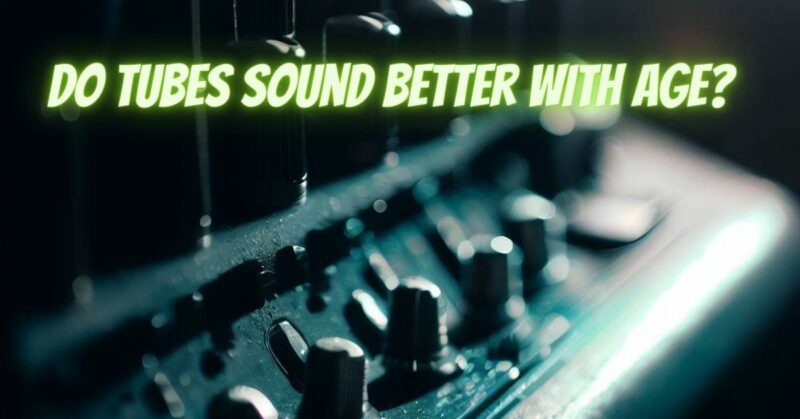The world of audio amplification is often accompanied by discussions about the tonal qualities of different components, especially vacuum tubes. A topic of intrigue among audiophiles and musicians is whether tubes sound better as they age. In this article, we’ll delve into the factors that contribute to this perception and explore the nuances of how vacuum tubes evolve over time.
Understanding Vacuum Tubes
Role of Vacuum Tubes: Vacuum tubes, also known as electron tubes or valves, are critical components in amplifiers and audio equipment. They play a vital role in amplifying and processing audio signals by controlling the flow of electrons through a vacuum.
Factors Contributing to Sound Evolution
Burn-In Period: When new vacuum tubes are introduced to an amplifier, they undergo a burn-in period during which their performance stabilizes and optimizes. This initial period of use helps the tube components settle into their proper operating parameters, potentially leading to changes in sound characteristics.
Mechanical and Electrical Aging: As vacuum tubes age, they can undergo subtle mechanical and electrical changes. The cathode emission, which is essential for electron flow, can vary over time. These changes can affect how the tubes respond to input signals, leading to shifts in sonic performance.
Harmonic Distortion and Sound Coloration: One reason tubes are often associated with improved sound over time is the development of a more pleasing form of harmonic distortion. This distortion can add warmth and character to the sound, enhancing musicality and depth. As tubes age, their harmonic distortion profile may evolve, contributing to the perception of improved sound quality.
Electron Mobility: With time and usage, electrons flowing within the vacuum tube can cause changes in the tube’s internal components. This can lead to a “seasoning” process where the tube’s electrical behavior becomes more consistent and stable. As a result, the tube’s sonic signature may also become more defined and nuanced.
Listener Bias and Expectations: Psychological factors play a role in how listeners perceive the sound of aging tubes. The expectation that tubes improve with age can influence how individuals subjectively experience the sound. This bias might lead to a preference for the sound of older tubes, even if the changes are subtle or largely psychological.
Context and Musical Application: The perception of whether tubes sound better with age can vary depending on the context of the musical application. Certain genres and styles might benefit from the evolving tonal qualities of aging tubes, while others might not be as influenced by these changes.
The notion that vacuum tubes sound better with age is a complex and debated topic. While there are factors that suggest tubes can undergo subtle changes in sound characteristics over time, the extent and significance of these changes can vary. Ultimately, the perceived improvement might be influenced by a combination of mechanical, electrical, and psychological factors. Whether tubes sound better with age is a subjective consideration, and listeners’ preferences and expectations play a substantial role in shaping their perception of sonic evolution.


